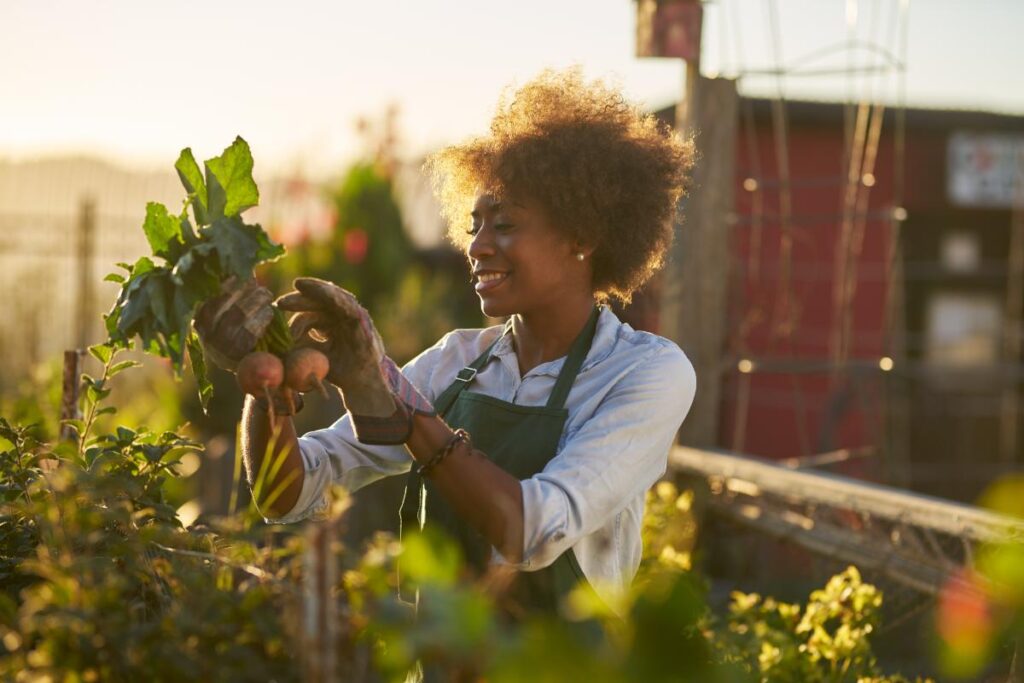Gardening can help people work through their stress and overcome some of the deep-rooted issues that are at the heart of addiction. As they spend time caring for their plants and seeing them grow, it can help to restore a sense of purpose and accomplishment in their lives. This can also lead to improved self-esteem and confidence, which are often lacking in those who are living with addiction.
To learn about our gardening therapy and all our addiction therapy services, call The Willows at Red Oak Recovery® at 828.518.6941 today. We are here to help women grow into their full potential.
What Is Gardening as Therapy?
Gardening as therapy entails the skillful use of horticulture activities to promote physical, mental, and emotional healing. Participants in this type of therapy may be responsible for planting, watering, and pruning various kinds of plants, trees, and flowers. The main aim of gardening as a therapeutic tool is to enhance relaxation, reduce symptoms of stress and anxiety, and foster a sense of accomplishment. It can also serve as a means for individuals to connect with nature and gain a sense of purpose.
How Gardening Therapy Works
In mental health and addiction treatment services, gardening therapy brings you close to nature. This is a bond you have not held in a long time as someone isolating and engaging in substance abuse. In fact, few people in modern living slow down enough to enjoy their environment. But as humans, we find ourselves drawn to natural vegetation for a sense of calm.
Gardening as an addiction therapy works both indoors and outside. The gardening activity works well, whether you engage with potted plants, garden vegetables or other greenery on a walk. Plants naturally bring mental health benefits of reduced stress, lower blood pressure and mood improvement.
Women and Gardening as Therapy
Women with addiction and related problems often face unique challenges in treatment. They need special care to help them recover fully and build a strong foundation for their future. Gardening therapy is an ideal method of helping women break free from the chains of addiction, stress, and trauma.
Gardening allows women to connect with their inner selves and find peace in a safe and welcoming environment. It also provides a sense of purpose, responsibility, and accomplishment that can boost self-esteem and self-worth. Moreover, gardening is a sustainable activity that can be continued even after treatment as a way to cope with daily stressors.
What Are the Therapeutic Benefits of Gardening?
Gardening as therapy can provide many benefits over and above those received from standard treatment protocols. Consider the following list of advantages:
Learning the Power of Cause and Effect
Those affected by addictive substances can sometimes have issues with the proper understanding of causal relationships. Caring for growing plants and trees can help people have a clear understanding of the powerful outcome of their ongoing actions.
Improvements in Self-Estee
ll can have a powerful effect on a person’s self-esteem and confidence. It can be calming and uplifting for individuals to witness firsthand the fruits of their labor.
Reduction in Stress Levels
Gardening helps to reduce panic attacks, stress, anxiety, and depression. Those engaging in this therapeutic approach may have better control of their overall mood.
Improvements in Physical Health
For some people, the ongoing abuse of drugs or alcohol may have led to a decline in physical health, strength, or stamina. Gardening can help build stronger muscles and improve fine motor skills.
Additional Holistic Options
Gardening as therapy doesn’t tend to occur alone. It may be most effective when combined with other holistic addiction treatment services. Music and art therapy, outdoor leisure, yoga, or meditation can all be a helpful part of a comprehensive rehabilitation program. Finding ways to connect with oneself, others, and nature can improve the chances of long-term recovery from addiction.
Enjoyable Therapy Proven to Free Your Thoughts
Gardening proves very therapeutic, as it provides an enjoyable outdoor activity almost anyone can engage in. Whether the gardening involves raking leaves, mowing or digging in the dirt, you learn many things about yourself during this quiet reflective time. At the same time, you gain clear results in your productivity, reaching goals each day you put on the gardening gloves.
People have long used gardening for mental health benefits. This therapy first gained acclaim in the 1800s. Dr. Benjamin Rush, the father of American Psychiatry, used gardening for his patients’ benefit. During the 1940s and 1950s, therapists noted how gardening helped post-war veterans heal from their “shell shock” and other physical and mental health problems. Gardening therapy, also called horticultural therapy, continues working well for people in mental health and addiction treatment.
Horticulture Therapy in Rehab Treatment
Horticultural therapy provides only one method of treatment among a full list of those you need in rehab for recovery. The Willows is a women’s treatment center recognizing the benefits of garden therapy, along with other key therapies and treatment methods. These methods and programs at The Willows include:
- Dual diagnosis
- Trauma therapy
- Service work and relationship-building
- Acupuncture, meditation, and yoga
Each woman in treatment at The Willows receives a customized treatment plan tailored to her unique needs. This plan includes holistic therapies, medical care, and counseling for lasting recovery and wellness.
Call The Willows Today to Explore Gardening Therapy
Many people without a green thumb assume they will never successfully nurture green, healthy plants. But in horticultural therapy, you work past your stress and fears to foster real growth inside yourself and in your plants.
To learn more about this therapy and other methods of The Willows treatment for women, call The Willows now at 828.518.6941 or contact us online.


